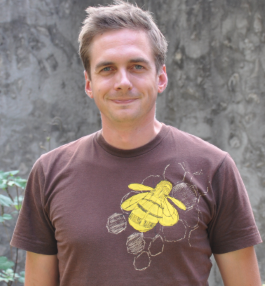
- B.Sc. (Guelph)
- M.Sc. (Queen's)
- Ph.D. (Toronto)
- P.D.F (Oxford)
Office: DNA C250
Phone: 705-748-1011 ext. 7585
Email: marceldorken@trentu.ca
Research interests:
- Evolution and ecology of plant reproduction
- Plant-pollinator interaction
- Invasive plant biology
Evolutionary transitions from one form of reproduction to another are associated with key changes in the ecology, life-history and genetic structure of plant populations. I am interested in two of these transitions, the evolution of separate sexes (dioecy) from combined sexes (hermaphroditism), and the evolution of asexuality from sexual reproduction. Most of the ongoing projects in the lab involve the first of these transitions, the evolution of separate sexes, which has occurred at least 100 times in the flowering plants alone. We use a combination of field work, manipulative experiments, and genetic marker studies to examine how and why unisexuality has evolved in this group.
Teaching
BIOL 1020H: Foundations of Biodiversity
BIOL 3170H: Plants and their Ancestors
BIOL 3190H: Wild Plants of Ontario
BIOL 4610H: Evolutionary Ecology
Selected publications
Tisshaw, K., Freeland, J., & Dorken, M. (2020). Salinity, not genetic incompatibilities, limits the establishment of the invasive hybrid cattail Typha× glauca in coastal wetlands. Ecology and Evolution, 10(21), 12091-12103.
Stephens, S., van Kleunen, M., & Dorken, M. E. (2020). Patterns of pollen dispersal and mating in a population of the clonal plant Sagittaria latifolia. Journal of Ecology, 108(5), 1941-1955.
Holt, R., Kwok, A., & Dorken, M. E. (2020). Increased spatial-genetic structure in a population of the clonal aquatic plant Sagittaria latifolia (Alismataceae) following disturbance. Heredity, 124(3), 514-523.
Dorken, M. E., & Van Drunen, W. E. (2018). Life‐history trade‐offs promote the evolution of dioecy. Journal of Evolutionary Biology, 31(9), 1405-1412.
Van Drunen, W. E., van Kleunen, M., & Dorken, M. E. (2015). Consequences of clonality for sexual fitness: Clonal expansion enhances fitness under spatially restricted dispersal. Proceedings of the National Academy of Sciences, 112(29), 8929-8936.


